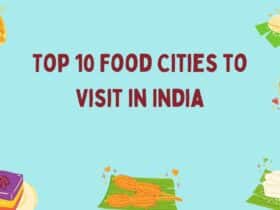Convenience and quality have been seen as opposing forces in our busy modern life, but farm produce delivery services are turning this around. Farm produce delivery services bring fresh, locally grown fruits, vegetables, dairy products, and other farm produce from the farm to the consumer directly. Whether you live in a rural village or an urban city, farm-to-door delivery means that you receive not only fresher food, but traceable and sustainable food.
Over the last decade, the farm produce delivery model has grown significantly. It supports local agriculture, reduces food miles, and allows consumers to enjoy healthy, chemical-free produce with minimal effort. In this article, we’ll explore the concept, benefits, types, challenges, and how to choose the right farm produce delivery service.
1. What Is Farm Produce Delivery?
Farm fresh delivery is a deal by which farm-fresh items such as fruits, vegetables, dairy products, eggs, and even meat are ordered by the customers and sent to their doors. Customers avoid purchasing pre-packed fruits and vegetables from superstores, which collect produce from central depots, and get them straight from neighboring or local farms.
Deliveries can be:
- Subscription plans (weekly/monthly subscription plans)
- On-demand purchases
- Tailor-made or curated bundles
The best on offer today are websites or apps online that provide consumers with access to walk through the products of the season they’re in and have them ordered with ease.
2. Why Farm Produce Delivery Is Going Mainstream
Various reasons offer increased popularity for farm-to-door service:
a) Health Awareness
They are now more aware of what they are putting into their body. Farm produce delivery acquaints them with chemical-free, organic, and healthy products.
b) Convenience
Busy lives do not allow all of us to go to the farmers’ market. Timed deliveries provide farm-fresh produce with convenience.
c) Support to Local Farmers
Direct purchase from the farm supports small farmers and maintains local farming.
d) Transparency and Trust
Most of these delivery services give information about the farms, method of farming, and life of the produce—gaining customers’ confidence.
e) Seasonal Variety
These services will most probably expose customers to seasonal fruits and vegetables, which yield a healthy and diverse diet.
f) Reduced Carbon Footprint
By shortening the supply chain and transport, farm deliveries minimize food miles and related emissions.
g) Improved Taste and Freshness
Because the produce is harvested at the delivery point, it will have a longer natural flavor, aroma, and nutrients compared to supermarket produce.
h) Reduced Waste
The services are normally on a demand-based level, hence reducing overproduction and wastage.
In contrast to supermarkets, the services are normally on a demand-based level, hence reducing overproduction and wastage.
3. Farm Produce Delivery Models
The farm produce delivery services are on a range of models, such as:
a) Community Supported Agriculture (CSA)
Members donate to a local farm and are given weekly drops of fresh vegetables and fruits. It maximizes farmer-consumer relationship and provides seasonal surprises.
b) Farm Co-operatives
Farms exchange their products among themselves so that they can provide more variety of commodities in one package. It maximizes co-operation between small farmers.
c) Farm-to-Table Retailers
Some companies partner with farms and ship independently, and greater diversity with baked goods, dairy, and organics.
d) Personal Orders
Customers select what they desire in their box that week—perfect for picky eaters or the specially dieted.
4. What Type of Products Are Typically Shipped?
While products do change seasonally and geographically, typical products will likely be:
- Fresh vegetables (carrots, greens, peppers, tomatoes)
- Seasonal fruits (apples, berries, melons)
- Herbs and microgreens
- Organic milk, cheese, butter
- Free-range eggs
- Fresh meat or poultry (based on farm operations)
- Honey, jam, or homemade preserves
- Bread or bakery items manufactured in small batches
Some services take a step further in offering plant starters or herbs to house gardeners.
5. Farm Produce Delivery Delays
Although the advantages are high, this system has its downsides as well:
a) Logistics and Perishability
The vegetables and fruits are perishable and need to be treated gently and delivered on time.
b) Seasonal Limitations
Seasonal change in products varies with the season and can restrict diversity during certain months.
c) Cost Drivers
Because of better quality and smaller size of production, farm produce can be slightly more expensive than supermarket produce.
d) Deliveries Reach
Far-off or remote areas might not have farm delivery on the menu yet.
e) Packaging Waste
Even green services can lose the balance of delivering produce to keeping with too much packaging.
6. Choosing the Top Farm Fresh Produce Delivery Service
Before subscribing, keep in mind:
a) Farm Transparency
Choose services that provide clear information about their partner farms and farm practices.
b) Delivery Frequency and Flexibility
Look if the service has weekly, bi-weekly, or on-demand service and whether you can delay or skip delivery.
c) Product Range
Choose services with a wide variety of fresh produce that align with your dietary plan.
d) Green Practices
Choose suppliers who package their goods in an environmentally friendly way and adopt low-impact farming.
e) Customer Feedback
Reading what other individuals say about their experience and feedback is the best way to make an educated estimate of quality, freshness, and trustworthiness.
f) Choice of Customization
In case you have a food allergy or special diet, choose services that provide you with a choice to customize your box as per your requirement.
g) Price and Membership Plans
Obtain the price as well as the price of subscription for comparison. Take care not to have any other surprise delivery and subscription charges.
h) Customer Support
Excellent customer support comes a long way, especially in case there is an issue with delivery or with the product itself.
Related: 12 Cheapest Food Delivery Apps in India that You Should Try


















Active Noon Media is the largest local to national digital media website that represents the voice of the entire nation.